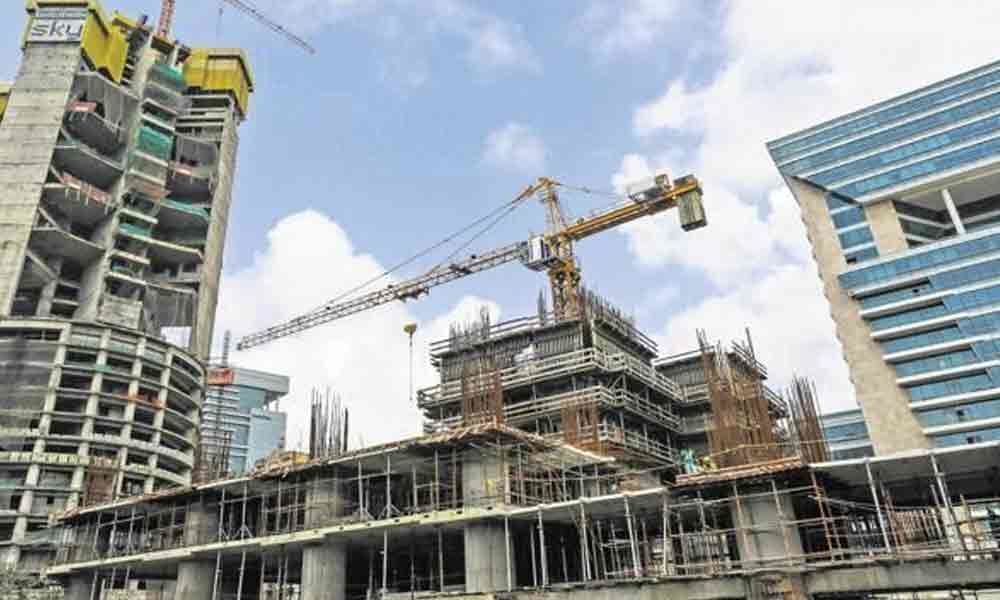Live
- Hotlines meant for cybercrimes not going through in Bengaluru
- Police appeals to public to stay alert against ‘digital arrest’ scam
- Coastal enthusiasts rejoice as govt announces funding for Kambala
- A Year of Olympic heartbreak for badminton
- KSRTC rolls out 20 ‘Ambaari Utsav’ sleeper buses
- Consecutive Olympic medals, Sreejesh, HIL make headlines
- Indian athletics: Neeraj stands tall
- YSRCP blamed for delay in bypass road completion
- Minister discusses ‘loan for capital’ with Hudco CMD
- BJP highly respects Ambedkar: Purandeswari
Just In

Housing sales increased by 12 per cent during the second quarter of this calendar year in seven major cities
New Delhi: Housing sales increased by 12 per cent during the second quarter of this calendar year in seven major cities, but growth tapered as many prospective buyers adopted wait-and watch approach during General Elections, according to property consultant Anarock.
Sales had risen 58 per cent to 78,520 units during the first quarter of 2019 driven by positive market sentiment on various incentives announced in the interim Budget. According to the data, housing sales grew to 68,600 units during April-June 2019 from 61,522 units in the corresponding period of last year.
Sales were up in four cities but declined in three cities. Mumbai Metropolitan Region (MMR) saw maximum demand, with sales rising by 36 per cent at 21,360 units compared to 15,739 units in April-June 2018. Housing sales went up by 25 per cent in Pune at 10,490 units, followed by the National Capital Region which recorded 13 per cent rise at 12,640 units.
Chennai witnessed 10 per cent increase at 2,990 units during the period under review. Among cities that clocked dip in sales, Kolkata led with a 12 per cent decline to 3,540 units in April-June 2019 from 4,030 units in the year-ago period. Surprisingly, Bengaluru, the most resilient property market, reported 11 per cent fall in housing sales at 13,150 units. Housing sales in Hyderabad were down by 7 per cent to 4,430 units.
Anarock Chairman Anuj Puri said, "As expected, the Indian realty market in Q2 2019 was somewhat eclipsed by the General Elections during the period". "Buyers were in wait-and-watch mode, while builders saw it as an opportune time to clear their previous unsold stock rather than launch new projects.
This was not unusual or unexpected, but in line with known election-period market trends," he added. Puri said the prevailing GST rates and the ambiguity surrounding it played spoilsport to some extent.
"All new projects to be launched since April 2019 needed to follow the new rate of 5 per cent GST minus the input tax credit (ITC) benefits. This was a grave concern for builders as it meant a cut in their profit margins if they were to keep property prices unchanged," he said. "Therefore, some builders preferred to wait for the new government to form, in the hope that some positive policy change would follow," he added.
From April 1, the government reduced the GST on under-construction flats in affordable category to 1 per cent from 8 per cent. In other categories, GST was brought down to 5 per cent from 12 per cent earlier. But the ITC was withdrawn. Completed flats do not attract any GST. Developers were also given the option to charge old rates for projects launched before April 1, 2019.

© 2024 Hyderabad Media House Limited/The Hans India. All rights reserved. Powered by hocalwire.com







